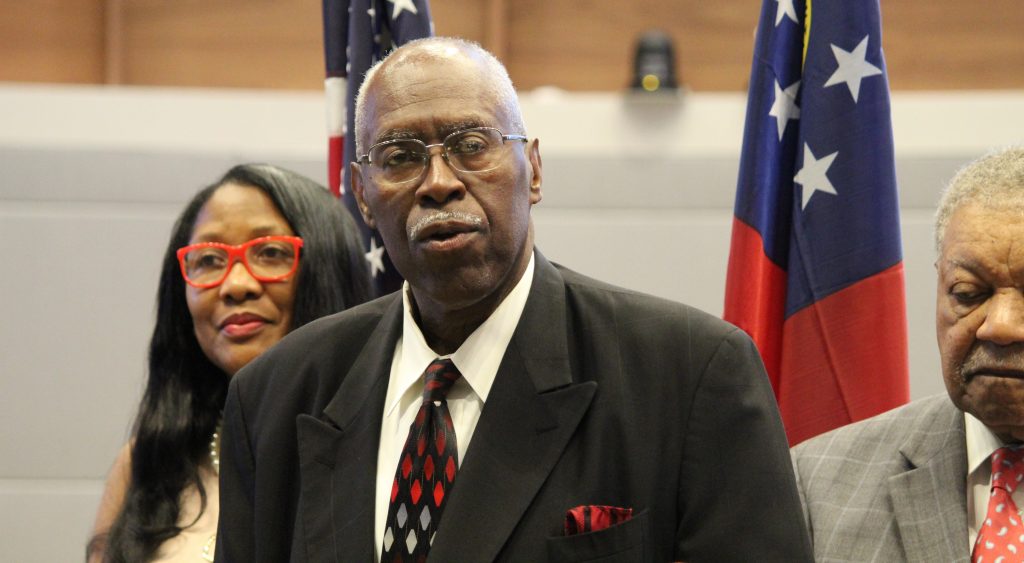Fulton County Puts Millions Of Federal Relief Dollars In Minority-Owned Banks
After years of planning, Loyal Trust Bank opened in Johns Creek in January of 2020. Just a few weeks later, the pandemic hit.
Chairwoman Rose Jarboe says things were slow as COVID-19 began to close things down. But then businesses started turning to Loyal Trust for PPP loans.
“Personally, I got calls that said ‘I banked with so-and-so bank for so many years, but they’re not taking my application, they’re not helping us,’” said Jarboe. “And I said ‘we’re here to help you.’”
Loyal Trust, which is Asian-owned, is one of two community banks that is receiving deposits from Fulton County. In all, the county is putting $10 million of its $206 million in American Rescue Plan funds into minority-owned banks with a presence in Fulton County. The move is meant to help more small businesses get access to cash.
“We’re really excited about what this could lead to,” said Fulton County Chairman Robb Pitts. “Beyond the American Rescue Plan money, the big money is coming next. And that is the infrastructure money.”
Congress continues to debate the infrastructure bill in Washington, but Pitts says the federal relief money that’s already been approved is intended to “help depressed communities and institutions.” He says that’s why the county decided to deposit millions into minority-owned banks.
“Traditional lending institutions, no disrespect intended to them, but they’re not as sensitive to the needs of these particular communities – Black and brown communities – as are the institutions that this money is designed to help,” said Pitts.
The other bank receiving a $5 million deposit is Texas-based Unity National Bank. It’s one of the few banks in the country with African-American owners.

George Andrews, who leads Unity’s Atlanta branch, says many minority-owned banks could not get federal rescue dollars at the height of the pandemic. He says the deposits from Fulton County can help his bank make more money available.
“This money, structured properly, can be that safety net to help these small businesses re-capitalize and keep those doors open,” said Andrews.
Andrews credited a law passed by the Georgia General Assembly in 2019 that eliminated the requirement that banks pledge collateral to receive deposits from municipalities.
“That is fundamentally a change in the structure in which we operate,” said Andrews.
The plan for Fulton to deposit part of its American Rescue Plan funding in minority banks received unanimous approval from county commissioners earlier this year.
“Small banks and community banks really play an outsized impact in our communities,” said Commissioner Bob Ellis. “I think this particular opportunity for us to be able to lean into that effort and hopefully expand upon that effort and have it grow in the future is going to be a tremendous partnership.”








